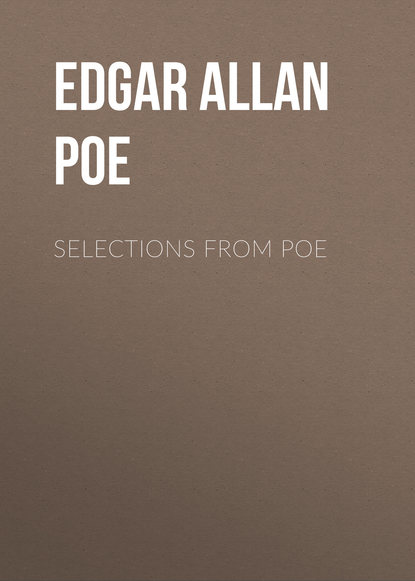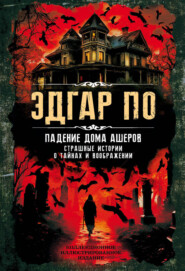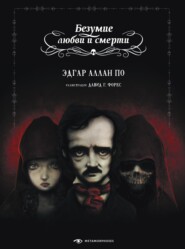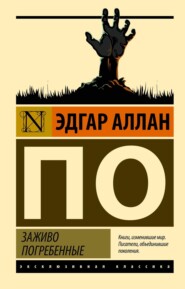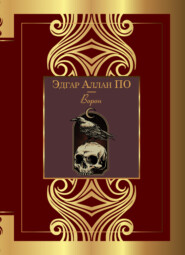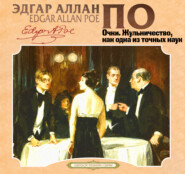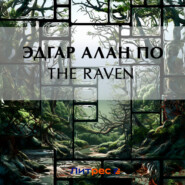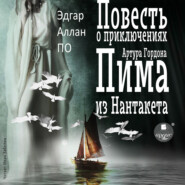По всем вопросам обращайтесь на: info@litportal.ru
(©) 2003-2024.
✖
Selections from Poe
Настройки чтения
Размер шрифта
Высота строк
Поля
132. 31. Liriodendron Tulipifera: the scientific name for the tulip tree, which sometimes attains a height of 140 feet and a diameter of 9 feet.
138. 25-26. curvets and caracoles: rare terms belonging to horsemanship; the first is a low leap, the second a sudden wheel.
142. 13. counters: pieces of money, coins; or the meaning may be imitation coins for reckoning or for counting in games.
142. 16. No American money. Why?
142. 31. Bacchanalian figures: figures dancing and drinking wine at a celebration of the worship of Bacchus, god of wine.
143. 29. parchment. What is the difference?
147. 20. aqua regia: "royal water," so called because it dissolves gold, is a mixture of nitric and hydrochloric acids.
150. 15. Golconda: a ruined city of India, once famous as a place for the cutting and polishing of diamonds; used figuratively in the sense of a mine of wealth.
150. 30. Read Poe's article on "Cryptography," included in his collected works.
151. 13. Spanish main: that part of the Caribbean Sea adjacent to the coast of South America. It was part of the route of Spanish merchant vessels between Spain and her new-world possessions, and was infested with pirates.
THE PURLOINED LETTER (Page 160)
First published in 1845 (see comment on the detective stories in the Introduction, page xxviii). This story is peculiarly original in its incidents and subtle in its reasoning. "The Murders in the Rue Morgue" should certainly be read also, and perhaps it will prove of more sustained interest to the majority of readers.
160. Quotation. Lucius Annæus Seneca (B.C. 4-A.D. 65) was a celebrated Roman philosopher and tutor of the Emperor Nero. The quotation means: "Nothing is more hateful to wisdom than excessive acumen."
160. 3. Dupin: introduced in "The Murders in the Rue Morgue."
160. 4-5. Au troisième: French, literally, "on the third," but the meaning is the fourth floor, because the count is begun above the ground floor; Faubourg St. Germain: an aristocratic section of Paris.
160. 15-16. Monsieur G – : introduced in "The Murders in the Rue Morgue."
164. 3. Hotel: in French usage, a dwelling of some pretension, – a mansion.
164. 7. au fait: French for familiar, expert.
168. 26. John Abernethy (1764-1831), an eminent English surgeon, was noted for his brusque manners and his eccentricities.
171. 15-16. François, Due de la Rochefoucauld (1613-1680) was a French moralist, author of the famous "Maxims"; Jean de la Bruyère (1645-1696) was a French essayist; see notes on Machiavelli and Campanella under "The Fall of the House of Usher," page 194.
172. 19. recherché: French for "sought after," selected with care.
173. 1. non distributio medii: "undistributed middle," a term in logic for a form of fallacious reasoning. Consult an encyclopedia, articles on "Logic," "Syllogism," and "Fallacy," or the Century Dictionary under "Fallacy."
173. 16. Nicholas Chamfort (1741-1794), a Frenchman, was said to be the best conversationalist of his day, and wrote famous maxims and epigrams. The quotation means, "It is safe to wager that every popular idea, every received convention, is a piece of foolishness, because it has suited the majority."
173. 27-28. ambitus: a going round, illegal striving for office; religio: scrupulousness, conscientiousness; homines honesti: men of distinction.
174. 17. Jacob Bryant (1715-1804), an Englishman; his work on mythology is of no value.
175. 5. intriguant: an intriguer.
176. 3. vis inertiæ: force of inertia.
180. 5. facilis descensus Averni: "the descent to Avernus is easy." Virgil's "Aeneid," VI, 126; Cranch's translation, VI, 161-162. Lake Avernus was, in classical mythology, the entrance to Hades. Consult Gayley's "Classic Myths."
180. 6. Angelica Catalani (1780-1849), a famous Italian singer.
180. 9. monstrum horrendum: a dreadful monster.
180. 23-24. "A design so baneful, if not worthy of Atreus, is worthy of Thyestes." Atreus and Thyestes were brothers to whom, in classic story, the most terrible crimes were attributed.
180. 25. Prosper J. de Crébillon (1674-1762), a noted French tragic poet. The quotation is from "Atrée et Thyeste."
notes
1
In November, 1900, a single copy of this little volume sold in New York for $2550.
2
A well-known Marylander, author of "Horse-Shoe Robinson," "Swallow Barn," "Rob of the Bowl," and other popular novels of the day, and later Secretary of the Navy.
3
Repeater, a person who illegally votes more than once
4
"The Philosophy of the Short-Story," Chapter IV of "Pen and Ink."
5
Watson, Dr. Percival, Spallanzani, and especially the
Bishop of Landaff. – See "Chemical Essays," Vol. V.
6
See Archimedes, De iis Ques in Humido Vehuntur, lib ii.
138. 25-26. curvets and caracoles: rare terms belonging to horsemanship; the first is a low leap, the second a sudden wheel.
142. 13. counters: pieces of money, coins; or the meaning may be imitation coins for reckoning or for counting in games.
142. 16. No American money. Why?
142. 31. Bacchanalian figures: figures dancing and drinking wine at a celebration of the worship of Bacchus, god of wine.
143. 29. parchment. What is the difference?
147. 20. aqua regia: "royal water," so called because it dissolves gold, is a mixture of nitric and hydrochloric acids.
150. 15. Golconda: a ruined city of India, once famous as a place for the cutting and polishing of diamonds; used figuratively in the sense of a mine of wealth.
150. 30. Read Poe's article on "Cryptography," included in his collected works.
151. 13. Spanish main: that part of the Caribbean Sea adjacent to the coast of South America. It was part of the route of Spanish merchant vessels between Spain and her new-world possessions, and was infested with pirates.
THE PURLOINED LETTER (Page 160)
First published in 1845 (see comment on the detective stories in the Introduction, page xxviii). This story is peculiarly original in its incidents and subtle in its reasoning. "The Murders in the Rue Morgue" should certainly be read also, and perhaps it will prove of more sustained interest to the majority of readers.
160. Quotation. Lucius Annæus Seneca (B.C. 4-A.D. 65) was a celebrated Roman philosopher and tutor of the Emperor Nero. The quotation means: "Nothing is more hateful to wisdom than excessive acumen."
160. 3. Dupin: introduced in "The Murders in the Rue Morgue."
160. 4-5. Au troisième: French, literally, "on the third," but the meaning is the fourth floor, because the count is begun above the ground floor; Faubourg St. Germain: an aristocratic section of Paris.
160. 15-16. Monsieur G – : introduced in "The Murders in the Rue Morgue."
164. 3. Hotel: in French usage, a dwelling of some pretension, – a mansion.
164. 7. au fait: French for familiar, expert.
168. 26. John Abernethy (1764-1831), an eminent English surgeon, was noted for his brusque manners and his eccentricities.
171. 15-16. François, Due de la Rochefoucauld (1613-1680) was a French moralist, author of the famous "Maxims"; Jean de la Bruyère (1645-1696) was a French essayist; see notes on Machiavelli and Campanella under "The Fall of the House of Usher," page 194.
172. 19. recherché: French for "sought after," selected with care.
173. 1. non distributio medii: "undistributed middle," a term in logic for a form of fallacious reasoning. Consult an encyclopedia, articles on "Logic," "Syllogism," and "Fallacy," or the Century Dictionary under "Fallacy."
173. 16. Nicholas Chamfort (1741-1794), a Frenchman, was said to be the best conversationalist of his day, and wrote famous maxims and epigrams. The quotation means, "It is safe to wager that every popular idea, every received convention, is a piece of foolishness, because it has suited the majority."
173. 27-28. ambitus: a going round, illegal striving for office; religio: scrupulousness, conscientiousness; homines honesti: men of distinction.
174. 17. Jacob Bryant (1715-1804), an Englishman; his work on mythology is of no value.
175. 5. intriguant: an intriguer.
176. 3. vis inertiæ: force of inertia.
180. 5. facilis descensus Averni: "the descent to Avernus is easy." Virgil's "Aeneid," VI, 126; Cranch's translation, VI, 161-162. Lake Avernus was, in classical mythology, the entrance to Hades. Consult Gayley's "Classic Myths."
180. 6. Angelica Catalani (1780-1849), a famous Italian singer.
180. 9. monstrum horrendum: a dreadful monster.
180. 23-24. "A design so baneful, if not worthy of Atreus, is worthy of Thyestes." Atreus and Thyestes were brothers to whom, in classic story, the most terrible crimes were attributed.
180. 25. Prosper J. de Crébillon (1674-1762), a noted French tragic poet. The quotation is from "Atrée et Thyeste."
notes
1
In November, 1900, a single copy of this little volume sold in New York for $2550.
2
A well-known Marylander, author of "Horse-Shoe Robinson," "Swallow Barn," "Rob of the Bowl," and other popular novels of the day, and later Secretary of the Navy.
3
Repeater, a person who illegally votes more than once
4
"The Philosophy of the Short-Story," Chapter IV of "Pen and Ink."
5
Watson, Dr. Percival, Spallanzani, and especially the
Bishop of Landaff. – See "Chemical Essays," Vol. V.
6
See Archimedes, De iis Ques in Humido Vehuntur, lib ii.





